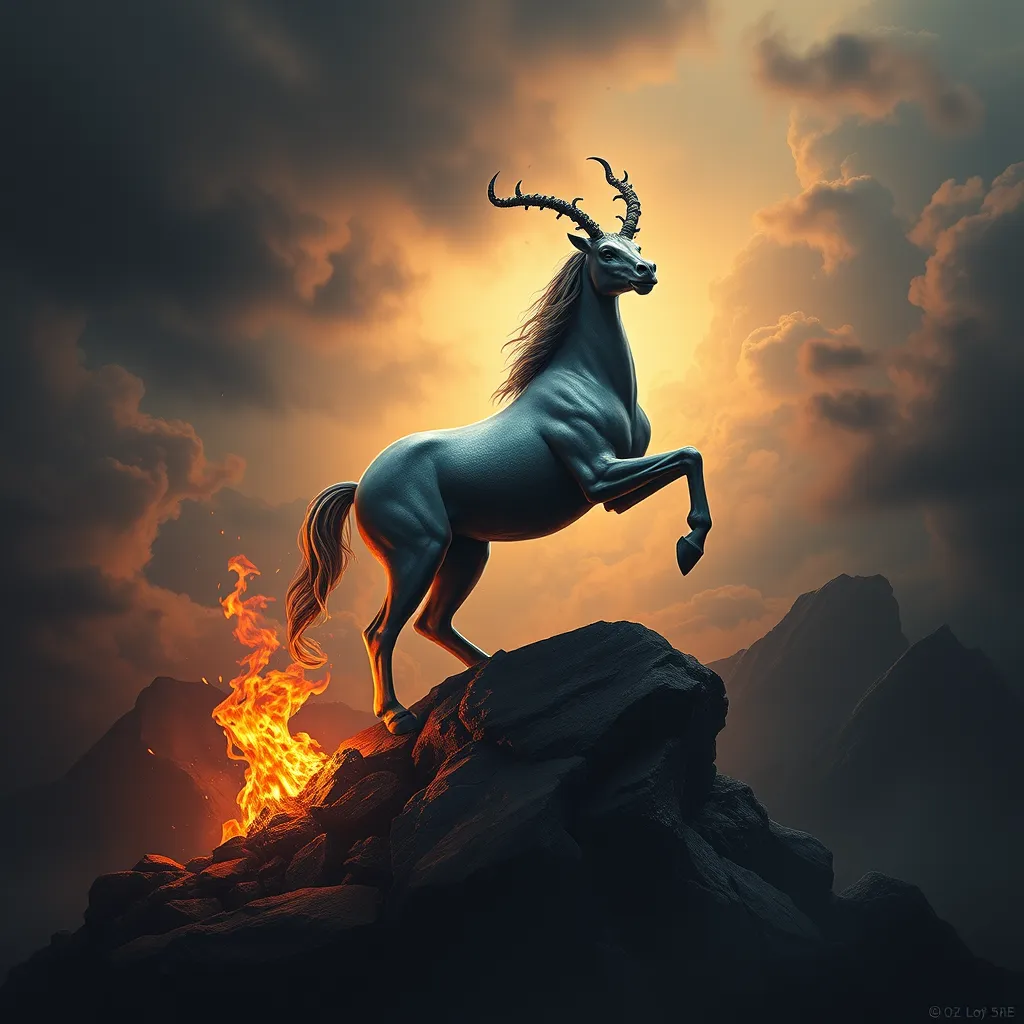The Centaur’s Sacrifice: Chiron’s Tragic Fate and the Gift of Immortality
I. Introduction
In the rich tapestry of Greek mythology, Chiron stands out as a figure of nobility and wisdom among the centaurs. Unlike his unruly kin, he embodies the virtues of healing, teaching, and sacrifice. Chiron’s story resonates with themes of sacrifice and immortality, presenting a poignant exploration of how these concepts intertwine in the human experience.
This article aims to delve into Chiron’s tragic fate, examining how his life and choices illuminate the complexities of existence, particularly the interplay between suffering and the gift of immortality.
II. Chiron: The Noble Centaur
Chiron was not an ordinary centaur; his origins set him apart from the rest of his race. Born to the Titan Cronus and the nymph Philyra, he was raised by Apollo and Artemis, who instilled in him a deep understanding of medicine, music, and the arts. Chiron’s lineage combined divine and earthly elements, granting him unique attributes that defined his character.
As a mentor and healer, Chiron played a pivotal role in Greek mythology. He tutored many heroes, including Achilles, Asclepius, and Hercules. His wisdom and knowledge made him a revered figure, contrasting sharply with the often chaotic and brutish nature of other centaurs, who indulged in revelry and violence. Chiron’s dedication to the betterment of humanity set him apart and laid the groundwork for his eventual tragic fate.
III. The Wounding of Chiron
Chiron’s life took a tragic turn due to a fateful encounter with Heracles. During a moment of conflict, a poisoned arrow, accidentally shot by Heracles, struck Chiron. This injury was not just physical; it bore a curse of immense suffering, as the poison from the arrow was unyielding and excruciatingly painful.
The nature of Chiron’s wound was particularly cruel, as it was inflicted by a friend—a reminder of the fragility of relationships and the unpredictability of fate. Despite his knowledge of healing, Chiron was unable to cure himself, highlighting the profound irony in his situation. His pain was emblematic of the suffering inherent in existence, and it raised questions about the nature of heroism and vulnerability.
IV. The Gift of Immortality: A Double-Edged Sword
Faced with insurmountable pain, Chiron was offered a choice: to accept immortality and free Prometheus from his eternal punishment, or to live his life in agony. In a moment of selflessness, Chiron chose to accept immortality, thereby allowing Prometheus to regain his freedom. This decision, while heroic, came with profound consequences.
- The Burden of Eternal Life: Chiron’s immortality became a burden, as he was forced to endure constant suffering without the solace of death.
- The Concept of Immortality: Chiron’s acceptance of immortality reflects a broader theme in mythology, where eternal life often comes with pain and sacrifice.
This duality of immortality as both a gift and a curse invites deeper exploration into what it means to live forever in a world filled with sorrow.
V. Chiron’s Sacrifice for Humanity
Chiron’s ultimate act of sacrifice came through his role in healing Prometheus, who was punished by Zeus for giving fire to humanity. By offering himself as a substitute for Prometheus, Chiron exemplified the highest form of altruism, prioritizing the welfare of others over his own suffering.
This act of sacrifice underscores the significance of Chiron’s character within the context of heroism. He represents the idea that true heroism often lies in selflessness and the willingness to endure pain for the greater good. His legacy transcends mere myth, serving as a powerful reminder of the potential for greatness within acts of compassion.
VI. Chiron in Art and Literature
Chiron’s narrative has inspired countless representations in art and literature throughout history. Ancient texts often depict him as a wise teacher and healer, illustrating his role as a mentor to heroes. Modern adaptations continue to explore his complexity, showcasing themes of sacrifice and immortality.
- Symbolism: Chiron is often symbolized as the bridge between the animalistic and the civilized, representing the duality of human nature.
- Thematic Analysis: Various works analyze his story through lenses of heroism, suffering, and the human condition, making Chiron a timeless figure in cultural discourse.
His story remains relevant, prompting reflections on the nature of mentorship, sacrifice, and the eternal quest for healing.
VII. Lessons from Chiron’s Fate
The narrative of Chiron imparts several moral implications that resonate deeply with the human experience. His life exemplifies the complexities of sacrifice, illustrating how pain can coexist with healing and growth.
- The Duality of Pain and Healing: Chiron’s journey serves as a metaphor for the human condition, where suffering often precedes understanding and compassion.
- Reflections on Immortality: The contemplation of immortality raises questions about legacy, purpose, and the value of life itself.
Chiron’s fate invites us to consider our own lives and the sacrifices we make for others, urging us to find meaning in both our joys and our struggles.
VIII. Conclusion
Chiron’s tragic fate is a poignant narrative woven into the fabric of Greek mythology, illustrating the interplay of sacrifice, suffering, and immortality. His legacy as a noble centaur and a selfless mentor continues to resonate, reminding us of the profound impact one individual can have on the lives of many.
As we reflect on Chiron’s story, we are invited to contemplate the complexities of our own existence, the sacrifices we make, and the nature of our legacies. In a world where pain and healing coexist, Chiron’s narrative encourages us to embrace our humanity, highlighting the beauty found in both suffering and selflessness.




